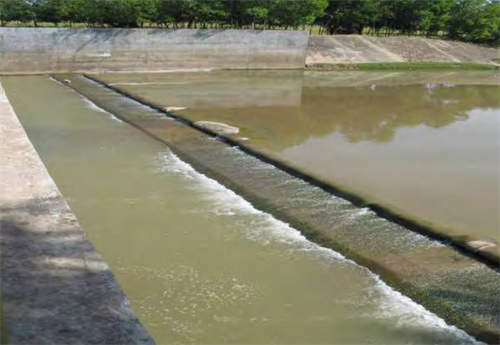Nov. 30, 2023
Construction
A spillway crest gate is a crucial component in dam structures designed to manage and control the release of excess water to prevent overflow and potential damage. The spillway is a structure that allows the controlled release of water from a reservoir or dam when the water level reaches a certain point. Crest gates, located at the crest or the top of the spillway, play a key role in regulating the flow of water over the spillway. Here are the key aspects of spillway crest gates:
1. Purpose:
The primary purpose of spillway crest gates is to regulate the discharge of water from a dam's reservoir. They are designed to prevent the water level from exceeding safe limits, ensuring the structural integrity of the dam and avoiding uncontrolled overflow.
2. Types of Crest Gates:
Radial Gates: These gates are hinged at a central point and can rotate to open or close. Radial gates are commonly used in spillways and offer effective control over water flow.
Vertical Lift Gates: Lift gates move vertically to control the flow of water. They are lifted to allow water to pass through and lowered to block the flow. Vertical lift gates are often used in large dams.
3. Operation:
Spillway crest gates can be manually operated or automated, depending on the design and scale of the dam. Manual operation may involve gears, chains, or hydraulic systems, while automated systems can be controlled remotely to respond quickly to changing water levels.
4. Regulation of Flow:
Crest gates provide a means to regulate the flow of water over the spillway. By adjusting the position of the gates, dam operators can control the discharge rate, preventing flooding downstream and ensuring the safety of the dam structure.

5. Emergency Situations:
In emergency situations, such as heavy rainfall or rapid snowmelt, spillway crest gates provide a controlled way to release excess water, preventing the reservoir from reaching dangerously high levels. This helps protect downstream areas from potential flooding.
6. Materials and Construction:
Crest gates are typically constructed from durable and corrosion-resistant materials, such as steel or aluminum, to withstand the environmental conditions of the dam site. The design considers factors such as water pressure, flow dynamics, and long-term durability.
7. Maintenance:
Regular maintenance of spillway crest gates is essential to ensure their proper functioning. This includes inspections for signs of wear, corrosion, or mechanical issues. Prompt maintenance helps prevent malfunctions and ensures the gates can respond effectively during times of increased water flow.
8. Safety Features:
Spillway crest gates often incorporate safety features to prevent malfunctions or failures. Backup systems, sensors, and monitoring devices may be implemented to enhance the reliability and safety of the gate operation.
In summary, spillway crest gates are critical components in dam infrastructure, providing a controlled mechanism for releasing excess water and preventing uncontrolled overflow. Their design, construction, and proper operation are essential for maintaining the safety and functionality of dam structures, contributing to effective water management and flood control.
Previous: What is lead rubber bearing?
If you are interested in sending in a Guest Blogger Submission,welcome to write for us!
All Comments ( 0 )